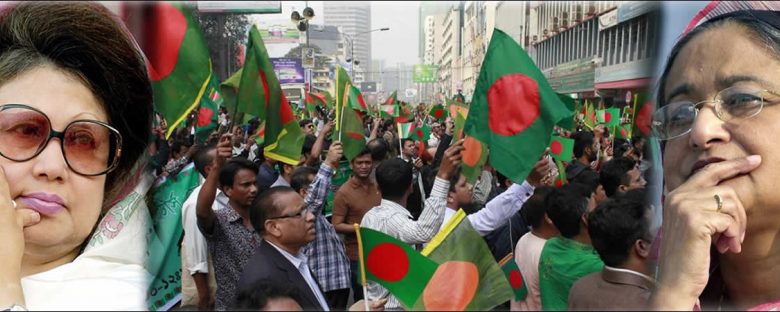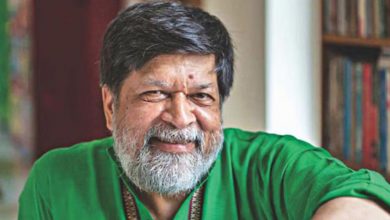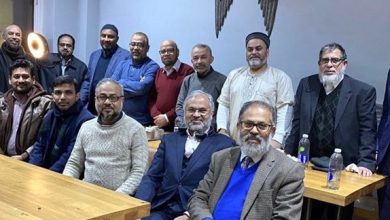Reintroduction of Non-Partisan Interim Government: Upholding the Verdict of the Supreme Court

By Shamsul Alam Liton, Editor-Weekly Surma
In a controversial landmark verdict in 2011, the Supreme Court of Bangladesh declared the long-standing provision of a non-partisan caretaker government as illegal. However, it also suggested that for the safety of the state and its people, this system should be practiced for at least two more parliamentary terms. Unfortunately, the ruling Awami League ignored this crucial aspect of the verdict and repealed the caretaker government system from the constitution, leading the country into a state of chaos and political imbroglio. It is imperative that we revisit the importance of the caretaker government system and advocate for its reintroduction.
Since the Supreme Court verdict in 2011, Bangladesh has experienced a series of general elections that have been marred by widespread rigging, corruption, and election engineering. These incidents have caught the attention of the international community, and the United States even implemented the 3C Visa rule, stating that it would not grant visas to individuals who hinder a fair election process in Bangladesh. This move highlights the seriousness of the situation and the need for immediate action to restore the integrity of our electoral processes.
The caretaker government system, introduced in 1996 through the 13th amendment to the constitution, has proven its effectiveness in ensuring free and fair elections. Under this system, an unelected non-partisan administration takes over from the elected government after the completion of its term. This interim government not only manages routine administration but also assists the Election Commission in conducting the polls, ensuring a level playing field for all political parties.
To avoid accusations of an unelected government and to ensure fairness and inclusivity in the formation of the next caretaker government, a careful selection process could be implemented. Former all-party Members of Parliament who were elected before 2014 and who will not be competing in the upcoming general elections could be chosen as members of the CTG. This approach would ensure representation from various political parties that have sent elected MPs to the parliament.
Moreover, the CTG could be headed by a retired Cabinet Secretary or an army chief who has been out of active service for at least 10 years. These individuals’ extensive experience in running the entire administration or the army of the country would bring valuable insights and a non-partisan perspective to the interim government.
To ensure the legality and legitimacy of the CTG, endorsement by the Supreme Court in line with its 2011 verdict should be sought. This endorsement would add a legal framework to the caretaker government’s formation and operation, ensuring compliance with the rule of law.
The primary responsibility of the CTG would be to arrange a free and fair general election within six months of its appointment. This timeframe would prevent any undue delays in the electoral process, while also providing ample time to create an environment conducive to fair elections by creating a level playing field. The CTG should work closely with the Election Commission to maintain transparency and integrity throughout the electoral process.
By adopting this consolidated approach, we can strike a balance between the need for an interim government and the requirements of a democratic system. The selection of former MPs from all parties who are not competing in the upcoming elections ensures representation of diverse viewpoints and avoids the perception of bias. Furthermore, appointing a retired Cabinet Secretary or Army chief as the head of the CTG brings valuable experience and expertise to the governance process.
Ultimately, the reintroduction of a non-partisan interim government, as suggested by the Supreme Court’s 2011 verdict, is an urgent need for Bangladesh. The chaos and political imbroglio that have plagued our nation since the repeal of the caretaker government system demand immediate action. By honoring the court’s decision, the government can restore faith in our democratic processes, appease international concerns, and pavethe way for a fair and transparent electoral environment.
It is essential to emphasize that the Supreme Court’s verdict remains in effect, despite the government’s repeal of the caretaker government system. The government is constitutionally bound to respect and uphold any decision made by the highest judicial authority of the land. By disregarding the court’s verdict, the ruling Awami League undermines the principles of democracy and the rule of law that form the foundation of our nation.
The international community has taken note of the challenges faced by Bangladesh in recent years regarding the integrity of its electoral processes. The implementation of the 3C Visa rule by the United States serves as a clear signal that fair elections are a global concern. To regain the trust of the international community and ensure the credibility of our electoral system, it is crucial to reinstate the caretaker government system.
By forming the next caretaker government through the suggested process, we can address concerns about the legitimacy of an unelected government. The inclusion of former all-party MPs who have been elected in previous elections ensures representation from various political parties and prevents accusations of bias. Additionally, appointing a retired Cabinet Secretary or Army chief with extensive administrative experience as the head of the CTG brings a wealth of knowledge and impartiality to the interim government.
To maintain the constitutional integrity of the caretaker government, seeking endorsement from the Supreme Court is of utmost importance. This endorsement will provide a legal framework for the CTG’s formation and operation, ensuring that it operates within the boundaries set by the court.
The primary responsibility of the CTG would be to arrange a free and fair general election within six months of its appointment. This timeline strikes a balance between allowing sufficient time for preparations and preventing any unnecessary delays that could undermine the democratic process. Collaboration with the Election Commission will be vital in creating an environment that fosters transparency, integrity, and equal opportunities for all political parties.
The reintroduction of the caretaker government system is not only a pragmatic solution but also a step toward healing the divisions and restoring faith in our democracy. It will demonstrate the government’s commitment to upholding democratic values and ensure that the upcoming general election is conducted in a manner that is widely accepted both nationally and internationally.
In conclusion, the reinstatement of a non-partisan interim government, as directed by the Supreme Court’s 2011 verdict, is imperative for Bangladesh. By adopting the suggested approach, we can address concerns about an unelected government and lay the groundwork for a fair and transparent electoral process. Respecting the rule of law and upholding the decisions of the highest judicial authority will strengthen our democratic institutions and pave the way for a prosperous future.
The time for action is now, and by embracing the principles of fairness, inclusivity, and transparency, we can forge a path towards a stronger democracy for the betterment of our nation and its people. The reintroduction of the caretaker government system is not just a constitutional obligation, but a crucial step toward safeguarding the future of our beloved nation. Let us unite in upholding the rule of law and ensuring that the voice of every citizen is heard in shaping the destiny of our great nation.
London, 12June, 2023.






